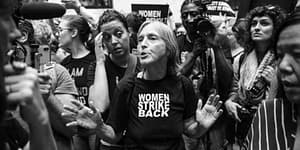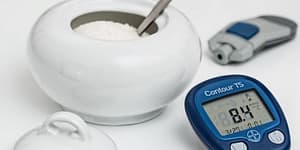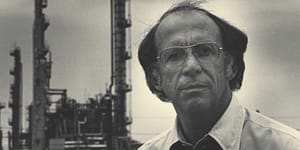Chelsea Green Blog
Politics & Public Policy
Depressed about Climate Change? Here’s How to Take Action
The facts about climate change are settled. Mostly. In fact, the news seems to get worse, and more urgent, every day. Yet, the more the facts stack up, the less resolve many people seem to have about getting behind solutions that will stem, or turn, the tide. What gives? Economist and psychologist Per Espen Stoknes…
Read MoreCreating a Better Earth & Future: Overshoot & Collapse
The environment can only take so much gas emission, over farming, and plastic. What can you do to minimize your human footprint and take care of the earth? Start by looking around you. The following is an excerpt from 2052 by Jorgen Randers. It has been adapted for the web. It is important to know…
Read MoreSugar, Fructose, and Fructophobia
We’ve always known that if you sit around all day eating candy, you will get fat. Conversely, cutting down on sugar, which is a carbohydrate, will contribute to weight loss and other benefits of a low-carbohydrate diet. However, the extent to which sugar, that is, sucrose, or its component fructose, contributes to obesity and other…
Read MoreAn Edible Urban Oasis
More than 80 percent of the US population now resides in urban areas. This number is projected to rise in the next few decades. Finding ways to maximize use of existing open space is imperative, and increasing access to food through sustainable management of edible landscaping is one important approach among many that are underway.…
Read MoreWhat is Massive Small?
It’s more than an oxymoron. Massive Small is a framework for urban development that can make cities more sustainable and resilient. But how does it work and does it make sense for the future? The following excerpt is from Making Massive Small Change by Kelvin Campbell. It has been adapted for the web. The Massive Small…
Read MoreOur History: A Look at Oil, Power, and War
For centuries, humans have had a very strong interest in oil and it’s only getting more intense. Our dependency is reaching a concerning level which Matthieu Auzanneau speaks to in his book Oil, Power, and War. The following article was written by Frank Kaminski and was published on Resilience.org. In Oil, Power, and War, French…
Read MoreA 15-Point Urban Food Manifesto
What if farms and food production were integrated into every aspect of urban living—from special assessments to create new farms and food businesses to teaching people how to grow fruits and vegetables so farmers can focus on staple crops. Urban farming is a story of recovery, of land and food, of people, and of the…
Read MoreThe 20 Rules of Slow Democracy
As millions of people head to the polls today to cast their vote, we got to thinking about the idea of democracy and how we need it now more than ever before. But what does democracy look like now and do we need to rethink it? Reconnecting with the sources of decisions that affect us,…
Read MoreHow to Cheat In an Argument: A Beginner’s Guide
Manners. We were all taught them from a young age, and yet, they are oft forgotten when we find ourselves in the heat of an argument about a topic we are passionate about. Before we know it, we are mere shells of ourselves, using cutthroat tactics to win our case. Unfortunately, our momentary loss of…
Read MorePolitics: There’s No Room for Politeness
The polite thing to do when asking for something is to say “please” and wait patiently. However, this doesn’t work in politics currently. Movements and change will only occur when the people demand action, when they have strong voices delivering their messages, and when they leave politeness on the table. Take Bernie Sanders for example.…
Read MoreThe Man Who Loved Labor And Hated Work
In response to one of the nation’s darkest labor-history chapters, Congress passed a law in 1894 making the first Monday of every September “Labor Day,” to pay tribute and honor the achievements and contributions of American workers. While the passing of the law helped to improve conditions, standards, and relations there was still work to…
Read MoreA Grassroots Revolution for Pesticide-Free Communities
As the ‘poison cartel’ creeps relentlessly across food systems, there is overwhelming evidence that something must be done to stop them. The small town of Mals, Italy took a stand and started a revolution to stop the corruption and pave the way for a pesticide-free future. The following excerpt is the foreword by Dr. Vandana…
Read MoreFixing the Economy: Radical Thinking for 21st-Century Economists
The economy is a complex, evolving system, and that’s an empowering thought: it means that every one of us can play a part in shaping its evolution. When it comes to understanding economics you may be familiar with classic texts like Adam Smith’s, but don’t view that as the be-all-end-all, lest you get stuck in…
Read MoreCommunity Food Forests in Action
Alright. We’ve covered the basics of what a community food forest is, how to plan one, and which approach is best. Now it’s time to see some in action! Keep reading to learn more about some of the pioneers of the food forest movement. The following excerpt is from The Community Food Forest Handbook by Catherine Bukowski…
Read MoreVictory Over Big Ag: How a small town said “Yes!” to a pesticide-free future
A Precautionary Tale shares the inspiring story of a group of citizens in Mals, Italy who fought Big Ag and won and, in doing so, became the first place on Earth to ban pesticides by a referendum vote. Their colorful, courageous, and ultimately savvy campaign is being heralded around the world as a landmark effort in…
Read MoreHow One Small Town Banned Pesticides: Freedom from Poison
Years of apparent collusion between companies producing pesticides and other chemicals and regulatory agencies such as the EPA. So how did a tiny town in Northern Italy prevail against big agriculture and make their town a pesticide-free zone?
Read MoreYou won’t have a revolution if you don’t ask for one
Get ready for the era of Big Organizing. In Rules for Revolutionaries, authors Becky Bond and Zack Exley lay out the 22 Rules the fueled the Bernie Sanders campaign and which provide a way forward for activists looking for ways to move forward post-Election Day. This model, which the authors call “Big Organizing” is the…
Read MoreA Mini-Festo for Earth Day – Rebuild the Foodshed
For the days leading up to Earth Day in years past, author Philip Ackerman-Leist runs a Twitter MiniFesto campaign – each day sending out a new tweet designed to spark conversation and pass along some lessons he learned whilst working on his book, Rebuilding the Foodshed. You might also know Philip as the author of…
Read More



















